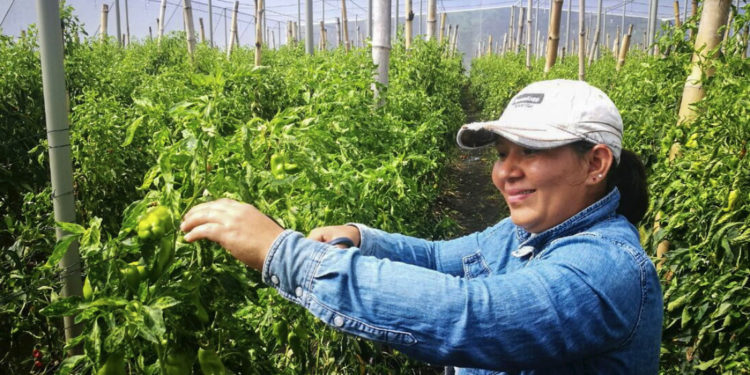According to the publication “The Status of Women in Agrifood Systems “, women make up 36% of the agrifood system workforce in Latin America and the Caribbean. The proportion of women in the agricultural workforce is higher or increasing compared to men in rural areas with high and predominantly male emigration.
April 13 – Rome, Italy / Santiago, Chile – Tackling gender inequalities in agrifood systems and empowering women reduces hunger, stimulates the economy, and reinforces resilience to shocks like climate change and the COVID-19 pandemic, reveals a new report by the Food and Agriculture Organization of the United Nations (FAO).
The report “The Status of Women in Agrifood Systems”, the first of its kind since 2010, goes beyond agriculture to provide a comprehensive picture of the status of women working across agrifood systems— from production to distribution and consumption.
The report highlights that, globally, the role of women tends to be marginalized and their working conditions are often worse than those of men in irregular, informal, part-time, low-skilled or intensive jobs of manpower. Similarly, women who work as wage earners in agriculture earn 82 cents for every dollar that men receive.
“If we tackle the gender inequalities endemic in agrifood systems and empower women, the world will take a leap forward in addressing the goals of ending poverty and creating a world free from hunger”, says FAO Director-General, QU Dongyu, in the foreword of the report.
Indeed, the study explains that closing the gender gap in farm productivity and the wage gap in agricultural employment would increase global gross domestic product by nearly $1 trillion and reduce the number of food-insecure people by 45 million.
Similarly, benefits from projects that empower women are higher than those that just mainstream gender. The authors explain that if half of small-scale producers benefited from development interventions that focused on empowering women, it would significantly raise the incomes of an additional 58 million people and increase the resilience of an additional 235 million.
“Efficient, inclusive, resilient and sustainable agrifood systems depend on the empowerment of all women and gender equality. Women have always worked in agrifood systems. It is time that we made agrifood systems work for women”, adds Qu.
Latin America and the Caribbean
In Latin America and the Caribbean, governments have increasingly addressed the challenges related to the structural gaps facing rural women in access to land, inputs, services, finance, and digital technology, developing policies and programs that contribute to closing the inequalities they face.
However, women suffer from more food insecurity than men in all regions of the world do, and the gap has widened since the outbreak of COVID-19. Globally, the gap between men and women in the prevalence of moderate or severe food insecurity increased to 4.3 percentage points in 2021 from 1.7 percentage points in 2019, largely driven by growing differences in Latin America and the Caribbean, where the gap reached 11.3 percentage points.
Women make up 36% of all agrifood system workers in Latin America and the Caribbean but show substantial variation in the proportion of women among countries in the region. For example, they represent 54% of the agrifood system workforce in Bolivia. In some countries in the region, the proportion has increased since 2005: by 9 percentage points in El Salvador, 8 percentage points in Colombia, and 6.3 percentage points in Ecuador. The proportion of women in the agricultural workforce is higher or increasing compared to men in rural areas with high emigration.
Recommendation
Overall, the report concludes that reducing gender inequalities in livelihoods, improving access to resources, and promoting resilience is a critical pathway towards gender equality, women’s empowerment and more just and sustainable agrifood systems.
This includes closing gaps related to access to assets, technology and resources. The study shows that interventions to improve women’s productivity are successful when they address care and unpaid domestic work burdens, provide education and training, and strengthen land-tenure security.
Access to childcare also has a large positive effect on mothers’ employment, while social protection programmes have shown to increase women’s employment and resilience.
Full Report: The situation of women in agri-food systems.









